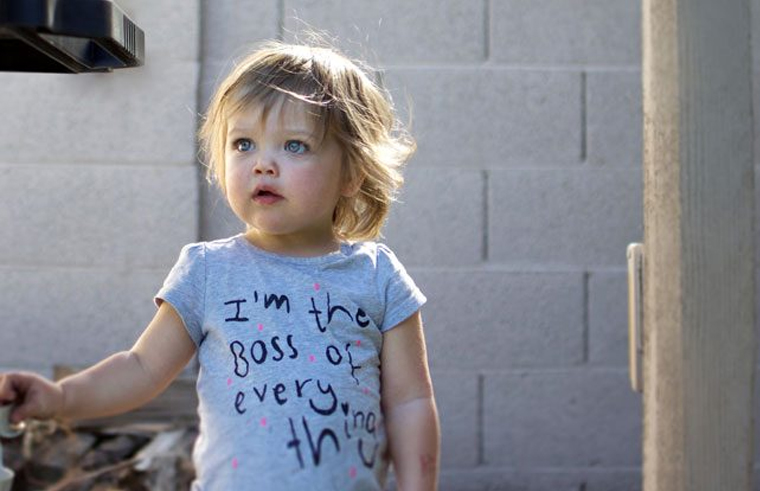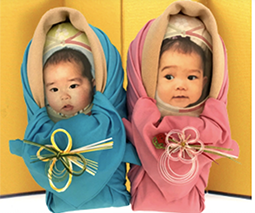Boss baby: Why we need to stop labelling kids bossy

My youngest has just found his bossy boots.
And it’s SO WEIRD for me.
It’s weird because he isn’t an extrovert. He’s an introvert and can be shy around people he doesn’t know. But when at home, where he feels comfortable, he’s been barking orders at me and controlling the play with his brother, who by nature, is a follower.
When I point out that he’s being rude, he says, “Sorry Mummy” and tries again with a please and thank you. It softens the command, but he is still, in essence, being bossy. He’s wanting to dominate the play.
So I did some research and found a few things out.
This is what it means if you have a little one who is more than a little assertive and why you need to resist calling him bossy.
Labels sting
Bossy is not an endearing label for anyone to wear. No one likes a bossy boots! No one likes being ordered around. But bossy does not necessarily mean rude. Of course it can, if a lack of socialisation is at play and manners are still being learned, but often kids who are dubbed bossy also have parents who are trying to stamp down the rude behaviour, and yet there is something in their child’s nature that compels him to order others around, and try to control the situation.
While someone calling your little one ‘bossy’, ‘pushy’ or ‘stubborn’ hurts, positive words like ‘assertive’, ‘future leader’ or ‘confident’ don’t.
This is why labels, and the language we use to describe our kids, matter.
A little one who has been called bossy as a child, might be ashamed of this and repress his leadership gifts.

Girls cop it worse than boys
There was a feminist campaign a few years back heralded by people like Google’s Sheryl Sandberg, Beyoncé, Condoleezza Rice, Jennifer Garner and Michelle Obama that tried to ban the word bossy when talking about young girls and instead promote words like ‘ambitious’.
It also addressed the fact that while a little girl gets labelled ‘bossy’ a boy acting the same way might be told he’s a future leader.
Sigh.
Helping to soften their commands
But while it’s well and good to change our language to be more positive, there is still a fine line between rude bossy behaviour and leadership or confidence.
If you have an assertive little one who feels compelled to control the play or a situation, he or she may have leadership qualities, BUT they also need to learn when this has stepped over into rude-ville and will rub some people up the wrong way.
One of the easiest ways to teach this is to be vigilant when it comes to manners to soften their commands. For example:
“Give me the dinosaur.”
Or
“Please give me the dinosaur.”
Prefacing a request with a ‘please’ will change it from a domineering command to a simple request.
Likewise, teaching kids to always say ‘thank you’ when their request is obliged shows appreciation. In addition, teaching them to take turns and share is a good foundation for treating others with respect and learning that their little friends also like to play in a certain way and with certain toys (but this takes ALL kids a while to grasp, so keep at it and keep positive!).
Learning these basic social graces is very important for a child to not be dubbed bossy. Likewise, teaching him to be inclusive and welcoming of others in play will keep them in good steed.
The best leaders are always polite and inclusive, but firm in their views and focused.

Future leader in the making
So yes, a bossy boots, or shall we say, assertive child, may have leadership qualities but it’s up to us to help him to exist in this world without being given a negative bossy label.
Especially if your little one is a girl.
As for my little guy, he may be asserting his desires and wanting to direct the play, but I’m not going to call him bossy. One day he might actually BE a boss, and if he is, well I want him to be a kind one who is considerate and understanding. It all starts in childhood.









